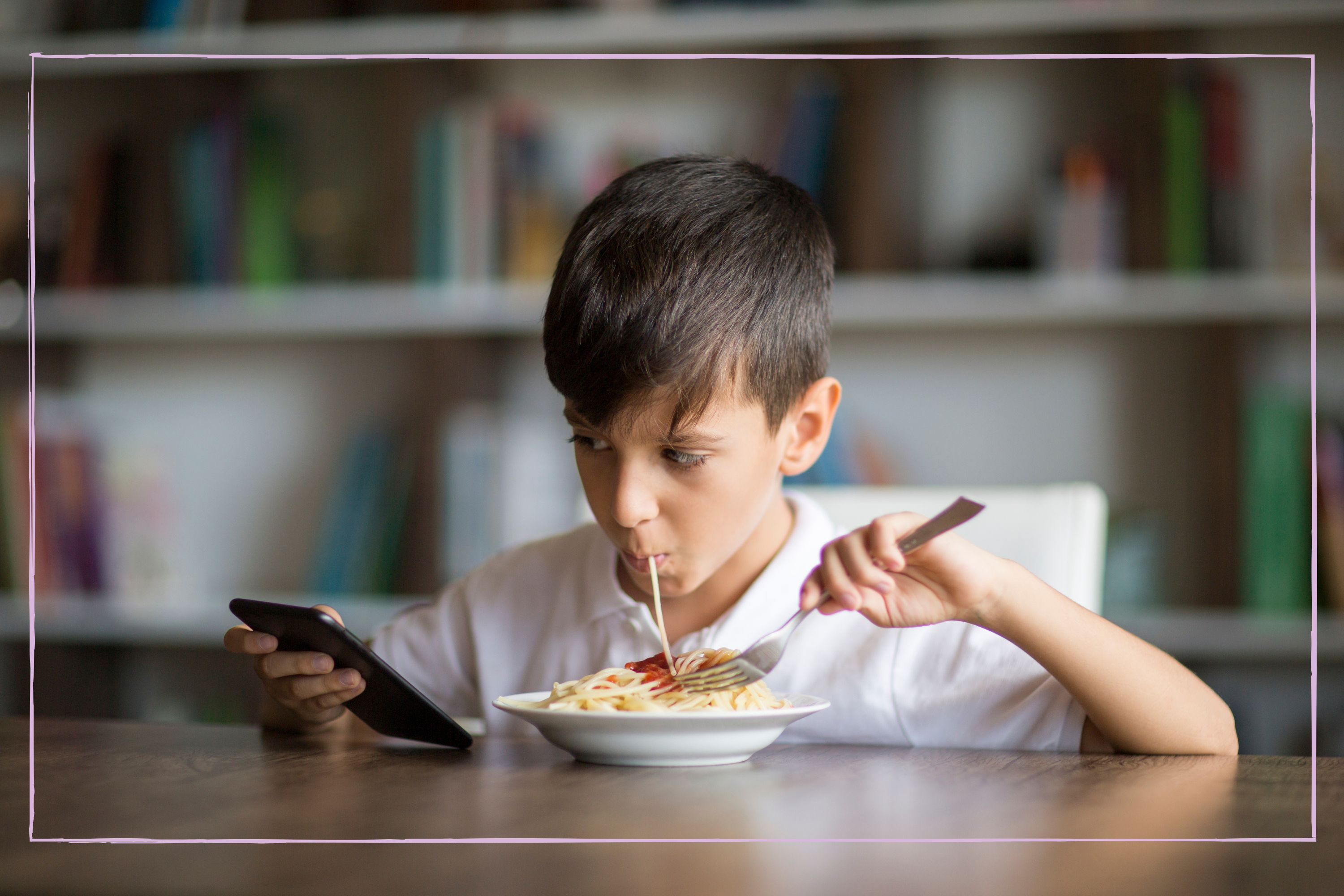10 rules that most parents have in place for their kids' smartphone use (#8 is controversial, but we understand if you've been tempted)
You might get some inspiration from these rules...


Research has revealed the 10 most common rules parents have put in place for their kids' smartphone use - although some have proved controversial.
With the news that mobile phones will be banned in schools, more and more parents are becoming aware of the impacts too much time online can have. In fact, research has shown that two-thirds of parents notice the negative effects of screen time on their children, which is just one reason why so many are searching for ways to keep kids safe on social media.
Life360, the family locator app and safety membership platform, has recently revealed the top 10 rules parents set for responsible phone use - and you might take some inspiration from them. The research surveyed 1,000 UK parents and found that common rules parents put in place include: no use of phones at night time (50 per cent), restrictions on apps (47 per cent) and limits on the total hours of use (42 per cent). Controversially, 38 per cent of parents whose children have phones revealed that they review their text messages.
The research also found that the nation remains divided on whether phones should be used at the dinner table, as half of parents surveyed place restrictions on phone usage during meal times, while the other half do not.
UK parents’ top 10 smartphone rules for kids
- Parental controls of website content
- No use at school
- No use at the dinner table
- No use at night time
- Restrictions on apps used
- Limits on total hours of use
- Restrictions on browsing
- Parental review of text messages
- Limits on where the phone can be used (e.g. only in the living room, not in the bedroom)
- No apps allowed
The research also polled parents on their reasons for allowing their children to have a phone, with two-thirds of parents ranking safety and security as the number one reason, surpassing other factors such as educational needs, convenience, and social lives.
Of parents whose children have smartphones, an overwhelming majority seek reassurance by actively using location-sharing technology. Many said this makes them significantly more likely to allow their children to do major activities like travel to and from school (86 per cent) and go to town or to shopping centres with friends unsupervised (also 86 per cent).
When parents were asked what the first type of app their child downloaded on their smartphone was, gaming apps ranked top of the list (45 per cent), followed by location-sharing apps (18 per cent).
Parenting advice, hot topics, best buys and family finance tips delivered straight to your inbox.
Parenting expert Kirsty Ketley commented: "Responsible use of phones can be essential to support today's parenting, from coordinating busy family schedules to giving peace of mind that kids are safe when not physically with them.
"It’s important that parents set clear rules and guidance for their families, and especially for their kids when they get a smartphone as this encourages safe habits that they benefit from right into adulthood.
"Of course, children learn from their parents, so the same rules should apply to every member of the family who owns a phone when it comes to when you use the phone, how and where. Setting the right example will ensure the right behaviour."
In related news, this is how long it takes for children to come across ‘unsafe, age-restricted and illegal content’ online, according to a new study, and screen time is being scientifically linked to abnormal behaviour in toddlers. If you're worried about how much time your child spends gaming, here are 15 'life-saving' questions to ask them.

Ellie is GoodtoKnow’s Family News Editor and covers all the latest trends in the parenting world - from relationship advice and baby names to wellbeing and self-care ideas for busy mums. Ellie is also an NCTJ-qualified journalist and has a distinction in MA Magazine Journalism from Nottingham Trent University and a first-class degree in Journalism from Cardiff University. Previously, Ellie has worked with BBC Good Food, The Big Issue, and the Nottingham Post, as well as freelancing as an arts and entertainment writer alongside her studies. When she’s not got her nose in a book, you’ll probably find Ellie jogging around her local park, indulging in an insta-worthy restaurant, or watching Netflix’s newest true crime documentary.